Tricky Words – also called irregular, high-frequency words – are hard-to-read words which often occur in early children’s books. Try sounding out these words with the standard basic sounds and you won’t get: ‘the’ and ‘was’ and ‘are’. If you want to further understand the science behind them, you can read more about their explicit, systematic teaching.

At home, my daughter and I use Phonics Hero’s tricky words games (parents can grab a free 7-day trial) but we’ve also invented lots of multi-sensory tricky word activities to practice them. In this blog post, I am going to share my top tips and favourite tricky words activities for teaching children to read these irregular words at home.
If you’ve signed up for a 7-day trial and are in Australia or Hong Kong use this list; for the rest of the world, use this one. You need to do a mini assessment: show the sheet to your child and have them read the tricky words, stop when you have a ‘bank’ of 3-6 unknown tricky words.
My daughter didn’t know five, so I wrote them out on cards and we use them to play games and reinforce through the day.
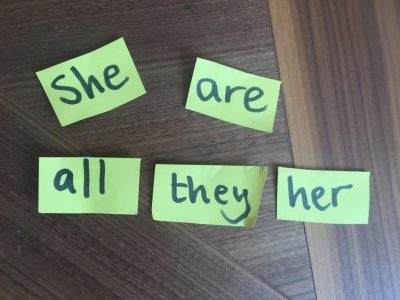
There isn’t a silver bullet to learning these words but exposure and repetition is key. You need to pepper them through your day – it helps your child instantly identify them. Some ideas:
As you read stories, point out the tricky words then progress to pausing and having your child read them.
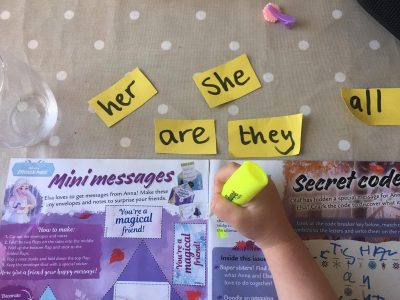
A teacher friend of mine sticks them all around the house so she can quiz her little boy throughout the day.
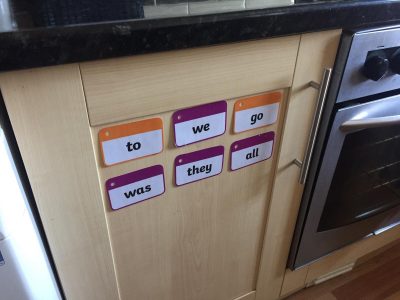
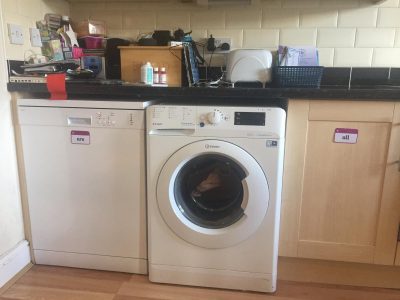
My daughter’s love of passwords and, in particular, the password to my iPhone (cue her unlocking it to send random texts to people!) inspired one of her new favourite tricky words activities.
Here’s how it works: Instead of numbers, we wrote tricky words into our passcode template and stuck it to the inside of the living room door. In order to open the door, she has to ‘key in’ our passcode, or series of tricky words. Three days later, she still loves it (and scolds me for opening the door without putting in the passcode!) and has learned the tricky words ‘all’ and ‘her’.
Here’s a printable Tricky Word Passcode sheet for you to insert the target words into and fill up with known words for extra practice.
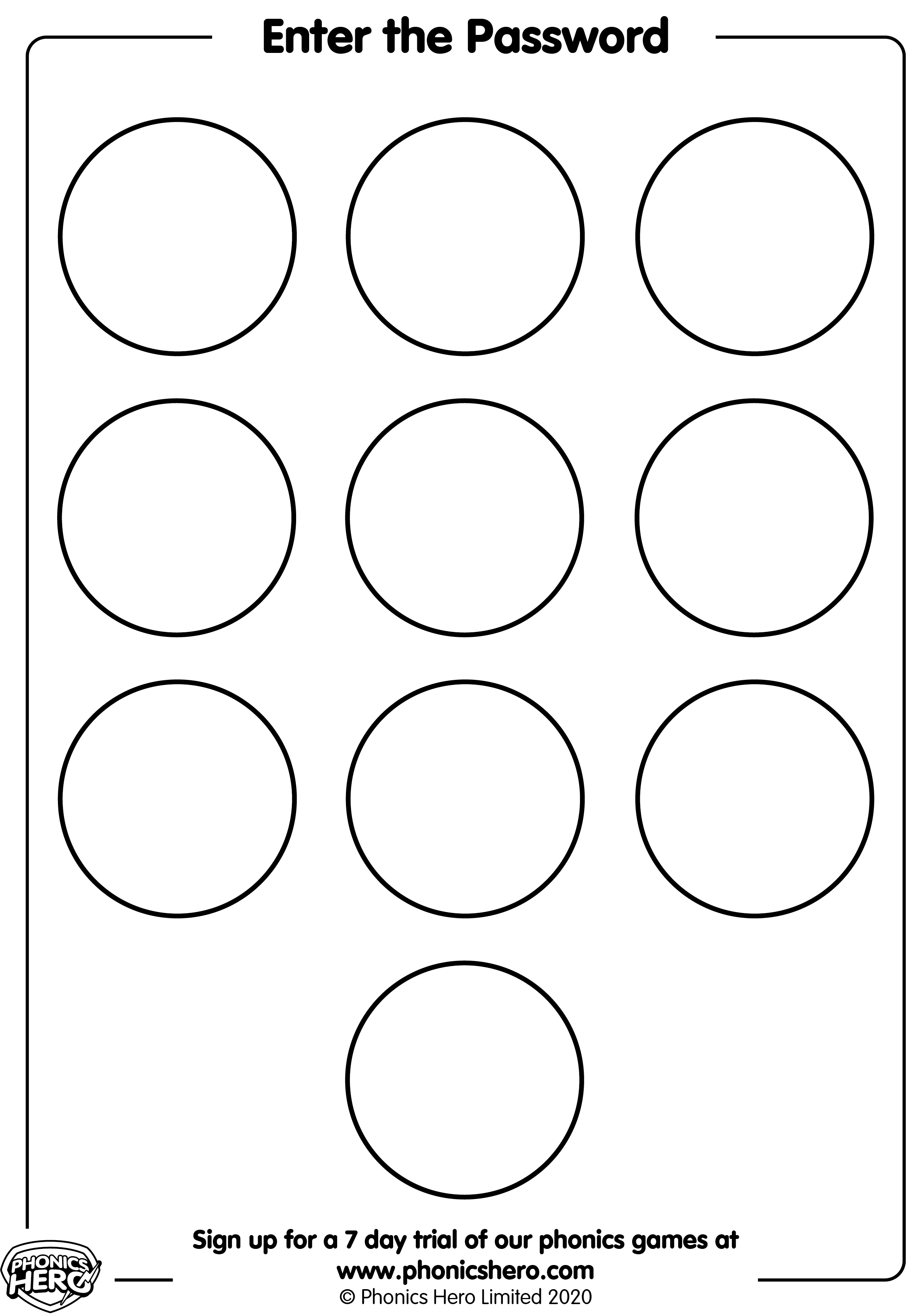
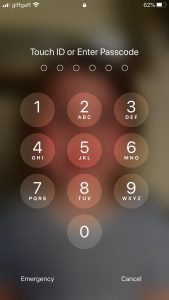
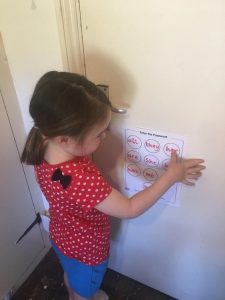
Bath-time is great for a no-mess reading activity!

Before running the bath, write tricky words or phonemes on the tiles with a whiteboard marker and grab a water blaster (or large syringe from any pharmacy). Little ones say each word or sound aloud as they ‘shoot’ their target!
Practice tricky word reading and spelling with Phonics Hero. Each level will teach between 3-6 words and there are more than 130 games over 12 levels to practice with. The reading and spelling tricky words games are indicated by these icons:


We’ve started using tricky words in games such as Noughts and Crosses (AKA Tic-Tac-Toe) or Hangman.
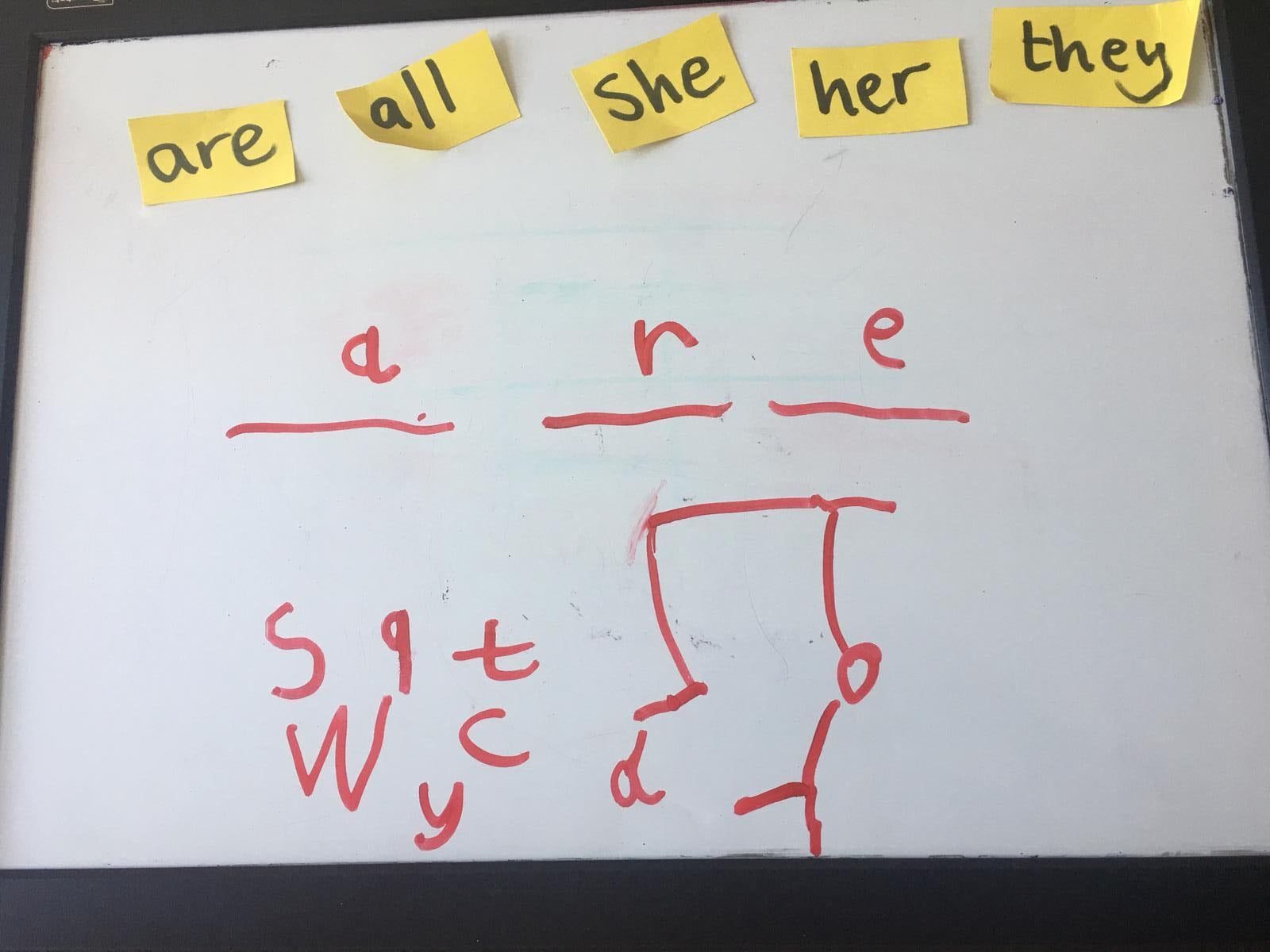
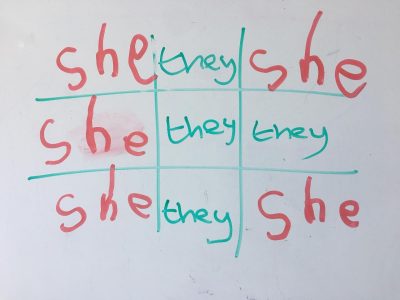
You can also double the sets of tricky words and play ‘Pairs’ or ‘Snap’.
We broke out the pots and pans and my daughter started composing with the tricky words. If your ears can bear it, here’s a video:

As you cook, clean or garden, you might use the bubbles, mud or flour to trace, land on or erase the words.
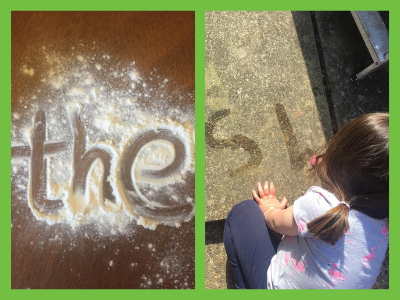
Kids love pointing out when the grown-ups have got it wrong and it’s a great test to see if they’ve learned the tricky words. As my teacher friend shows here, she and her son take turns reading the words and he awards them each a point for the correct answer (of course, mummy gets it wrong all the time – so your child gets double the practice).
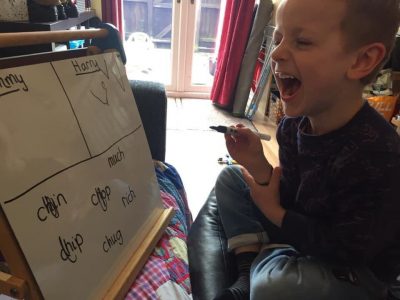
Do you have a great tip or trick for teaching tricky words that you don’t see here? Share it in the comments!